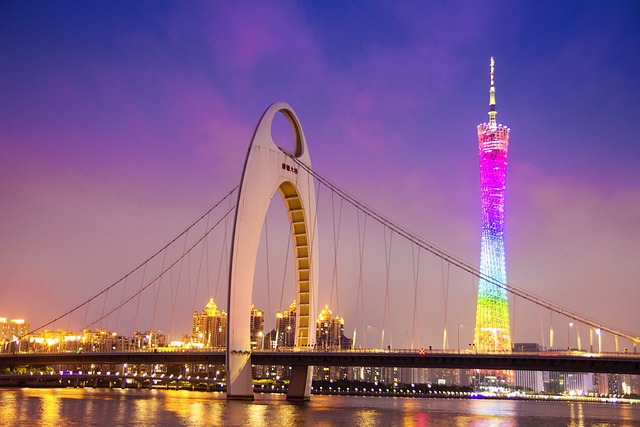Guangzhou, a city with a long history, has been famous for its prosperous business since ancient times. This city is not only an economic center in southern China, but also a shining pearl in the history of world trade. Let us travel through the long river of time and explore the story of this thousand-year-old commercial capital.
Ancient prosperity
Guangzhou’s history can be traced back to the Qin Dynasty, when it was already the county seat of Nanhai County. With the rise of the Maritime Silk Road, Guangzhou gradually became an important port for trade between the East and the West. In the Tang Dynasty, Guangzhou had become the main window for China’s foreign trade, with merchants gathering and abundant goods, and was known as the “Pearl of the South China Sea”.
The Golden Age of Trade
In the Song Dynasty, Guangzhou’s trade reached a new peak. It is not only a hub for trade between China and Southeast Asia, India, Arabia and even Africa, but also a bridge for cultural exchanges. Guangzhou in the Song Dynasty, with its open attitude, attracted countless foreign businessmen, making the city full of multicultural vitality.
Cultural Fusion
Guangzhou is not only a commercial center, but also a melting pot of culture. Various religions, arts and academics meet here to form a unique Lingnan culture. Historical sites such as Chen Clan Ancestral Hall and Guangxiao Temple are not only witnesses of Guangzhou’s history, but also treasures of Lingnan culture.
Modern changes
In modern times, Guangzhou has played an important role in China’s changes. As one of China’s earliest open trading ports, Guangzhou became the forefront of China’s opening up after the Opium War. It has witnessed many important events in China’s modern history and has become the birthplace of China’s modern industry and revolutionary ideas.
Contemporary brilliance
Today’s Guangzhou still maintains its commercial vitality. As China’s third largest city, Guangzhou is not only the economic center of southern China, but also an important platform for international trade. Guangzhou’s Zhujiang New Town, Tianhe Business District, Liuhua (Railway Station) Business District and other places show the modern face of the city with their modern architecture and prosperous business.
Future prospects
Looking to the future, Guangzhou will continue to meet new challenges and opportunities with its open attitude. The city will continue to play its leading role in the regional economy, while constantly promoting cultural innovation and scientific and technological progress to maintain its position as a world trade center.
Guangzhou, a thousand-year-old commercial capital, not only carries a rich historical and cultural heritage, but also writes its own legend with its enterprising spirit. Whether in the past, present or future, Guangzhou will continue to attract people from all over the world with its unique charm.
